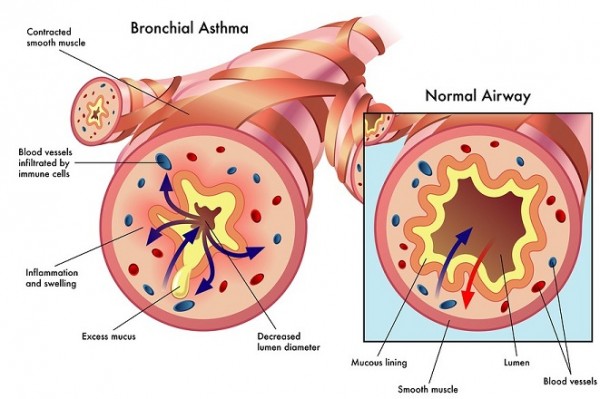Asthma is a chronic condition that affects the airways. It causes wheezing and can make it hard to breathe. Some triggers include exposure to an allergen or irritant, viruses, exercise, emotional stress, and other factors.
Asthma symptoms
Symptoms of asthma include:
- coughing, especially at night, when laughing, or during exercise
- wheezing, a squealing or whistling sound made when breathing
- tightness in the chest
- shortness of breath
- fatigue

Cause of asthma
No single cause has been identified for asthma. Instead, researchers believe that the breathing condition is caused by a variety of factors.
These factors include:
If a parent has asthma, you’re more likely to develop it.
- History of viral infections.
People with a history of viral infections during childhood are more likely to develop the condition.
This hypothesis proposes that babies aren’t exposed to enough bacteria in their early months and years. Therefore, their immune systems don’t become strong enough to fight off asthma and other conditions.
Frequent contact with possible allergens and irritants may increase your risk for developing asthma
Types of asthma
- Allergic asthma (extrinsic asthma)
- Nonallergic asthma (intrinsic asthma)
- Occupational asthma
Asthma treatment
3 steps to better asthma control
- Track your symptoms
- Record how well your lungs are working
- Adjust treatment according to your asthma action plan
Treatment for asthma
- Inhaled steroids are the preferred controller medication for people with uncontrolled asthma. These medications provide better control of asthma symptoms and prevent future asthma attacks better than leukotriene blockers.

Long-term control medicines are taken every day to prevent symptoms and attacks:
- Antileukotrienes or leukotriene modifiers
- Cromolyn sodium
- Inhaled corticosteroids
- Long-acting inhaled beta2-agonists (always administered with another asthma-related drug)
- Methylxanthines
- Oral corticosteroids
- Immunomodulators